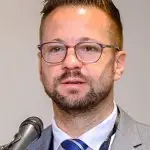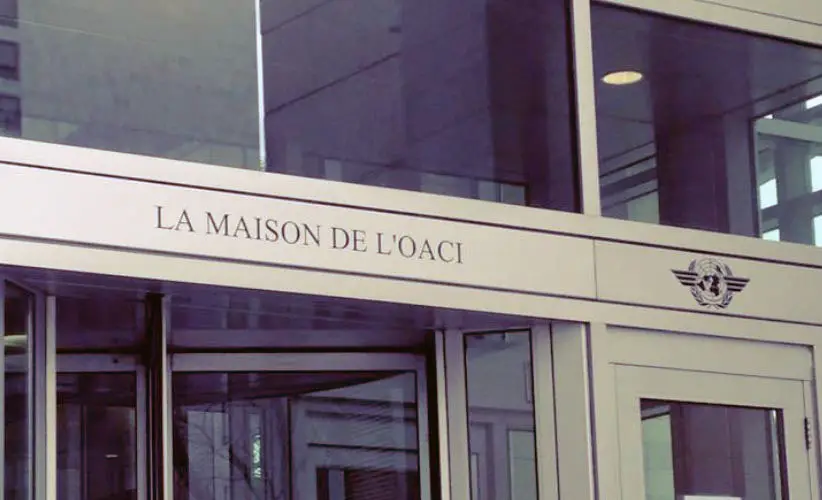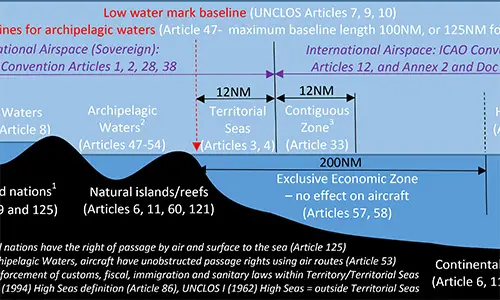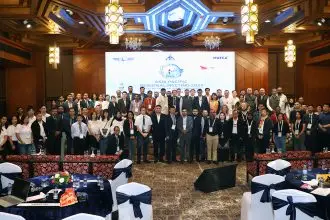
by Jean-François Lepage
IFATCA Liaison Officer to the ICAO Air Navigation CommissionThe 224th Session of the ICAO Air Navigation Commission (ANC) took place from 25th September to 10th November 2023. Traditionally, the Commission has always worked for periods of nine weeks at a time. This time, the Session was slightly shorter than the usual nine weeks. For some time, the intention of the President of the ANC, in consultation with the ICAO Secretariat, has been to try to shorten sessions by two weeks to save on costs. This Fall session was part of the trial; however, it became evident during the last week that it would be impossible to finish the assigned work programme within the allocated timeframe. Therefore, it is unlikely that this trial will continue in the future.
As always, IFATCA was represented in the ANC by the Liaison Officer to the ICAO ANC. The Commission discussed over 40 working papers, but three specific items among all of them deserve special attention: the approval of the Separation and Airspace Safety Panel (SASP) Job Cards, the Final Review of a working paper proposing a large number of amendments stemming from the 18th meeting of the RPAS Panel (RPASP/18), and the approval of the Terms of Reference (ToRs) for the newly established True North Task Force.
Change in the duration of the ANC Sessions
As mentioned above, this Session was two weeks shorter than normal. This proved challenging to the point where the President of the ANC had to reshuffle some of the items, delete or defer some of them, and add extra meetings that were not foreseen initially. This became a problem for several commissioners and industry observers like IFATCA that had arranged their schedules based on the originally planned timetable for this session. The President agreed it was undesirable, and future Sessions will be extended before they start, or changes to the timetable will have to be agreed beforehand.
Not being able to finish the agenda was not so much of an issue for this Session, but it will be next year, as we get closer to the 14th Air Navigation Conference, and for the following year, which is an Assembly year. To try to mitigate that, the time that was dedicated to each Commission Group (CG) meeting was significantly longer than usual. Some topics, like the Proposals for Amendments (PfA) related to RPASP/18 were more contentious and took much longer than expected. Luckily, this was compensated by some other topics, such as the Direct Submission Process, which took less time than anticipated.
Liaison with the IFATCA Technical and Operations Committee (TOC) and Professional and Legal Committee (PLC)
Many topics require close coordination between ICAO and two of our standing committees, TOC and PLC. Some of those subjects include system-based licensing (this was discussed many times in the ICAO Personnel Training and Licensing Panel (PTLP), RPAS DAA (where there is an obvious link with the RPAS Panel (RPASP), but potentially the Surveillance Panel (SP) as well), VFR workload and capacity (while it may not be obvious, there is a strong link and important definitions proposed related with sector capacity determination, which is an important issue at ICAO), and expected aircraft performance, remote towers and FF-ICE, which could eventually require input from the ATM Operations Panel (ATMOPSP) and the ATM Requirements and Performance Panel (ATMRPP).
ICAO Air Navigation World (ANW) ATM – Procedures for Today
At the invitation of ICAO, I also attended the ICAO Air Navigation World (ANW) ATM – Procedures for Today. The first iteration of the ICAO ANW 2023 was held in August this year in Montreal, Canada and focussed on high-level procedures for the future. The event did not specifically target ATM. This second iteration of the ICAO ANW 2023 was specifically dedicated to ATM, as an enabler for future ICAO initiatives. In other words, things like FF-ICE, TBO, SWIM, UAM and AAM, UTM, etc, are all dependent on the implementation of existing ICAO provisions.
The event also highlighted several ICAO provisions that have been in the “ICAO books” for several years, which would be inexpensive and easy to implement. Still, States have not yet decided to implement them. For example, separation standards in PANS-ATM for oceanic and remote airspace are not widely implemented worldwide and could enable significant gains in capacity and efficiency. The event was also a platform to foster better coordination among States and, more importantly, at the regional level. Several speakers brought up ATFM, and the need for regional (and eventually global) Free Route Airspace (FRA) was highlighted. I was invited to represent IFATCA and to moderate and facilitate a half-day session dedicated to the new Wake Turbulence Groups (WTG) separation minima (also known as RECAT) and a panel of experts participating in a Q&A session on the topic.
Approval of the Wake Turbulence Specific Working Group (WTSWG) and the Separation and Airspace Safety Panel (SASP) Job Cards
The fourth meeting of the Separation and Airspace Safety Panel (SASP/4) was held in Montréal from 8 to 19 May 2023. During the SASP/4 meeting, five new job cards were agreed upon to be submitted to ANC. In addition, the fifteenth meeting of the Wake Turbulence Specific Working Group (WTSWG/15) was held in Montréal the previous month, from 19 to 21 April 2023. The main objectives of the meeting were to agree on the WTSWG work programme (one job card), the terms of reference (ToRs), and the working arrangements. The ANC agreed to review the proposed job cards during its 224th Session. Mr. David Perks, IFATCA member on SASP and chair of the panel, asked me to inform him of the adoption process for the JCs. In the end, all JCs were approved, except one, on the creation of guidance material related to operations of High-Altitude Platform Systems (HAPS); the Commission felt that the scope of the job card wasn’t clear enough and requested the panel to clarify the scope before the ANC could approve it.
Final Review of the Proposals for Amendments (PfA) stemming from the 18th meeting of the RPAS Panel (RPASP/18) on Annexes 6 Volume IV, 1, 2, and 8
A few months ago, an ICAO State Letter proposed several amendments to ICAO Annexes initiated by the RPAS Panel. In coordination with our representative on the panel, Mr Eugenio Diotalevi (and his team), we drafted our State Letter response, which was also coordinated with IFALPA.
One of IFATCA’s proposals was to forbid one pilot to fly more than one aircraft simultaneously, which is in line with the Federation’s policy on simultaneous operations by one single controller of multiple remote towers. The ICAO Secretariat did not support our position at first and came back with a proposed compromise. After intense work, our proposal gained momentum within the ANC and was finally incorporated into the proposals. For both IFALPA and IFATCA, it is obviously a highly favourable outcome.
Approval of the Terms of Reference (ToRs) for the True North Advisory Group (True-AG)
Recommendations were presented on the transition to True North as the reference system for heading and tracking in air operations. These recommendations are based on the results of a recent ICAO survey and stakeholder discussions. To move forward with the idea, ICAO proposes establishing ToRs for the future True North Advisory Group (True-AG). The objective was not to review the survey done by ICAO again but rather to establish what the AG would eventually do, and the following was agreed:
a) develop a CONOPS for the global implementation of True North along with a comprehensive transition plan;
b) conduct further studies on the impact of a True North transition on different stakeholders, based on the CONOPS, including a cost-benefit analysis;
c) present a proposal for how the transition to True North could be managed for State review and agreement; and
d) provide advice to the ANC, in coordination with relevant Panels, on the development of work programme items for job cards, subject to the outcome of the above.
Panel Meetings taking place during the ANC Session
To conclude this ICAO round-up, I would like to highlight that a record seven panel meetings in which IFATCA has membership were scheduled during this ICAO ANC Session. I would also like to highlight our attendance at the 22nd meeting of the RPAS Panel. Mr Christoph Gilgen (Helvetica – Switzerland) and Mrs Sylvie Lemay (CATCA – Canada) were able to attend and assist our member on the Panel, Mr Eugenio Diotalevi (ANACNA – Italy), thanks to the support from their respective associations. Mr Gilgen has been a long-standing collaborator at ICAO, namely on the topic of Safety Nets in the Surveillance Panel (SP). Since his “retirement” from SP, he never really stopped contributing to ICAO, and did so in his own personal time. Mrs Sylvie Lemay has been a regular contributor to the RPAS Panel, through the position she held previously at Nav Canada. Since returning to active controlling, she expressed the desire to contribute to the panel again, this time under the IFATCA umbrella.








